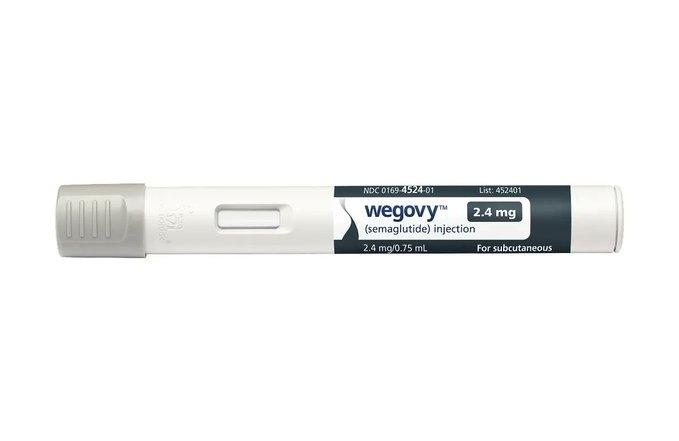Sought-after obesity drug Wegovy backed for NHS use

Novo Nordisk’s weekly injectable drug Wegovy, which can help people lose more than 10% of their body weight, has been cleared for use on the NHS in England by cost-effectiveness agency NICE.
Wegovy (semaglutide) has become a social media sensation as a weight-loss treatment after being name-checked by numerous celebrities, driving huge demand around the world and stretching Novo Nordisk’s ability to supply the drug.
Due to shortages, so far the company has not launched the drug in the UK, though it has been approved here since 2021, and as of February the only two ex-US markets where Wegovy has been made available were Denmark and Norway.
NICE has said the GLP-1 agonist can only be used for adults undertaking an NHS-administered weight-loss programme – including a reduced-calorie diet and increased physical activity – who have at least one weight-related health issue and a body mass index (BMI) of at least 35, putting them in the obesity range.
The health issues could include pre-diabetes, diabetes, high blood pressure, or high cholesterol, which would often be present in someone with that BMI. It can also be prescribed to people with a BMI between 30 and 35, if they have been referred to specialist weight management services.
According to its approved label, Wegovy is approved for use in obese people with a BMI of 30 or more, as well as for those who are overweight with a BMI of 27 or more.
Two-year limit
NICE has also limited the duration of therapy to two years in its final guidance published this morning, saying there is insufficient data on long-term use.
“It won’t be available to everyone,” said Helen Knight, director of medicines evaluation at NICE. “Our committee has made specific recommendations to ensure it remains value for money for the taxpayer.”
NICE said its guidance mirrors clinical and financial modelling supplied by Novo Nordisk during the appraisal process that people are treated for a maximum of two years in specialist weight management services.
That restriction has been criticised by some specialists, particularly as the data with Wegovy suggests weight tends to rebound when treatment with the drug is stopped over the course of a year.
Limiting the duration of treatment is “understandable based on cost effectiveness [but] makes no clinical sense, as we would not stop treatment for any other chronic disease,” according to Prof Alex Miras, Professor of Endocrinology at Ulster University.
Only making the drug available through weight-loss programmes is another barrier to access, as there are not enough of these available and they are under-resourced.
“It is therefore vital that the appropriate investment in such services becomes available, otherwise the guidance may end up becoming irrelevant to daily care,” said Professor Miras.
What was welcomed, however, was that NICE had relaxed a stipulation in earlier draft guidance that the drug could only be prescribed by ‘tier 3’ services, used for people with obesity who have not responded to other interventions.
The recommendation by NICE has also been applauded by Professor Nick Finer of the National Centre for Cardiovascular Prevention and Outcomes at UCL, who said the drug is a “game-changer” for the medical treatment of obesity.
He added, however, that the two-year limit was “illogical”, and said that NICE should reconsider its restrictions if an ongoing cardiovascular outcomes trial with Wegovy, due to report later this year, finds that it can prevent deaths from heart disease in people with obesity.
The 2019 Health Survey for England estimated that 28% of adults in England were obese and a further 36% were overweight. The current costs of obesity in the UK are £6.1 billion to the NHS and £27 billion to wider society, according to government figures.
Some other experts are keen to rein in expectations about the drug. “Without changes to society and any long term support, sadly, when treatment for people living with obesity stops, many can then regain weight,” said Dr Duane Mellor, a registered dietitian and senior lecturer at Aston University’s medical school.
“We need semaglutide to be seen as part of the toolkit that supports people to be able to improve their health, not [as] a magic or singular solution.”
Analysts have said pent-up demand for Wegovy could see it quickly reach $3 billion to $4 billion in annual sales – assuming Novo Nordisk can ramp up manufacturing capacity for the drug.
The pharma company is also developing a daily, oral formulation of semaglutide for obesity, with phase 3 trial results due later this year. In its fourth-quarter update, it said it expects the oral form to match the safety and efficacy of Wegovy.













